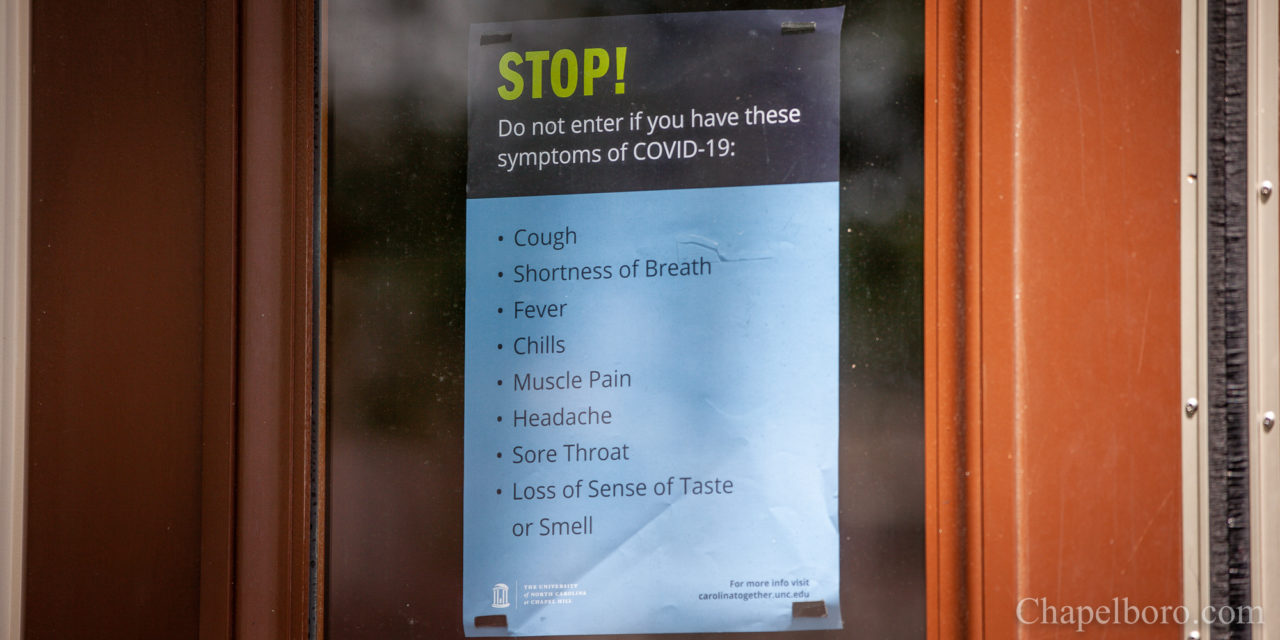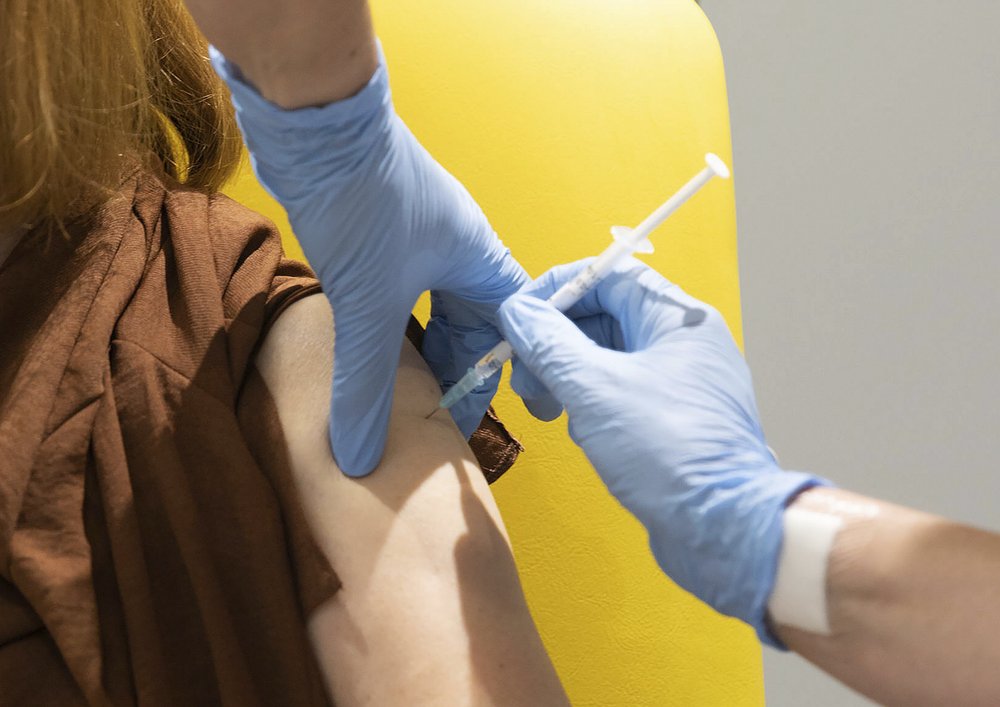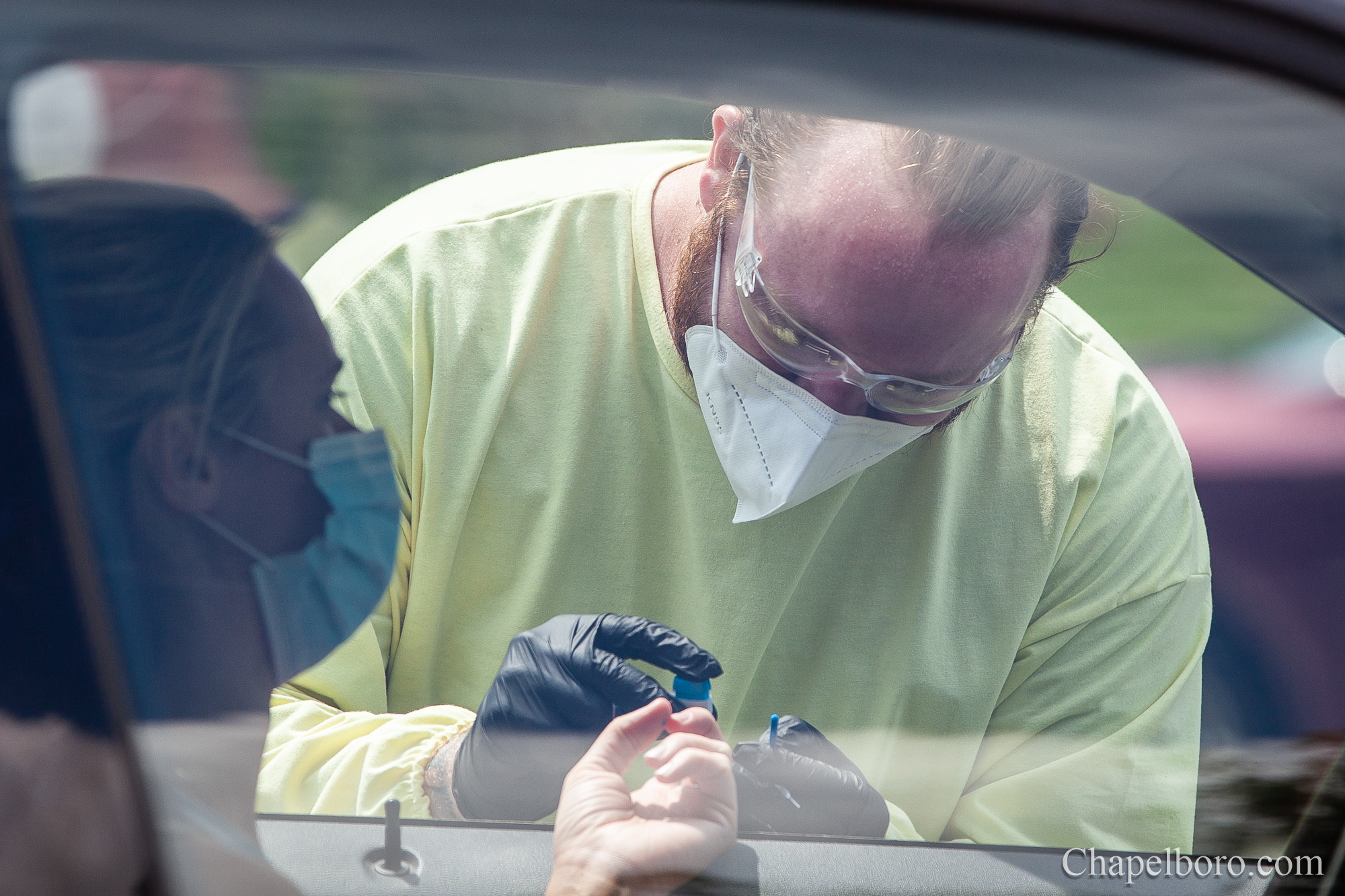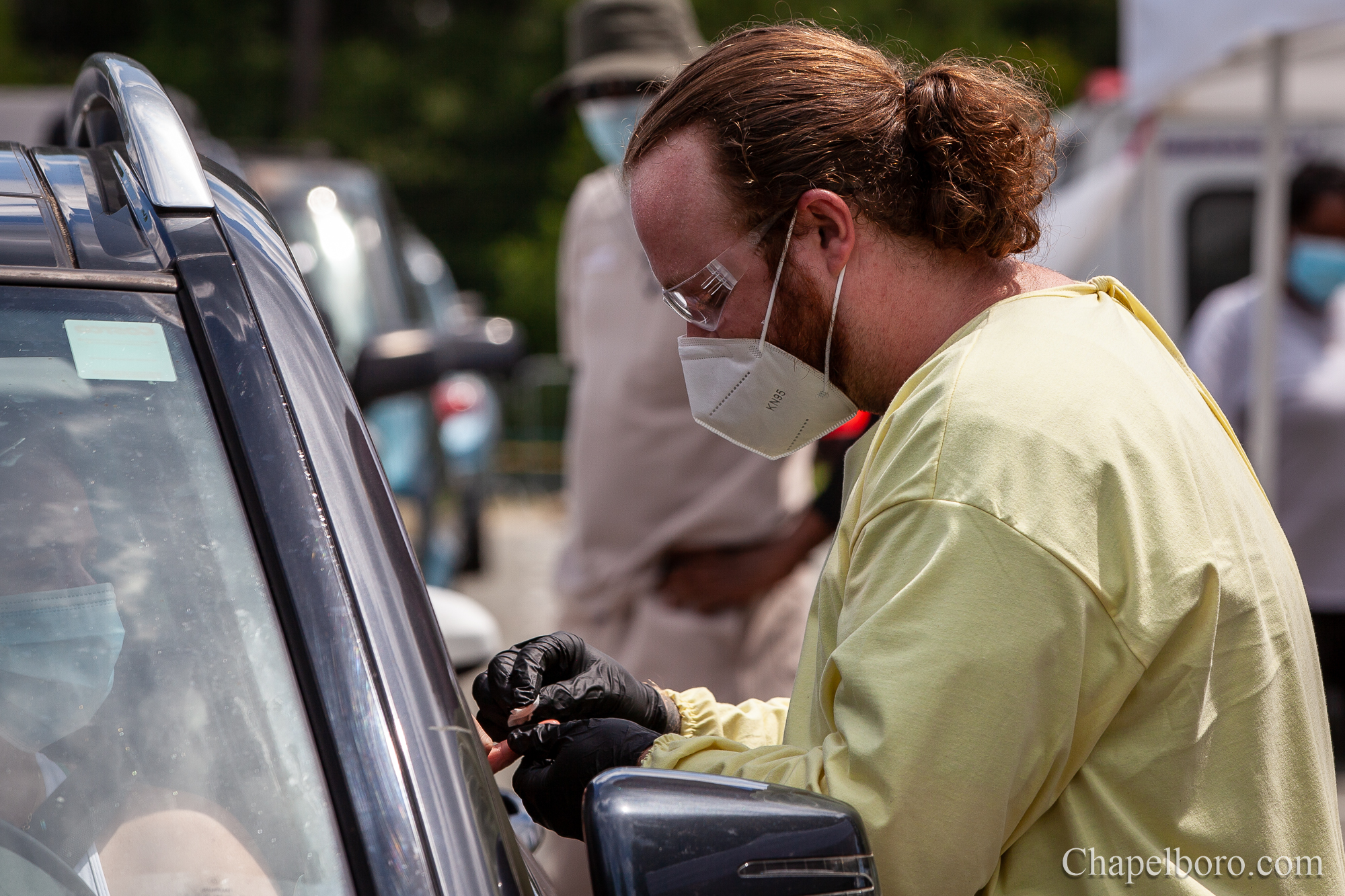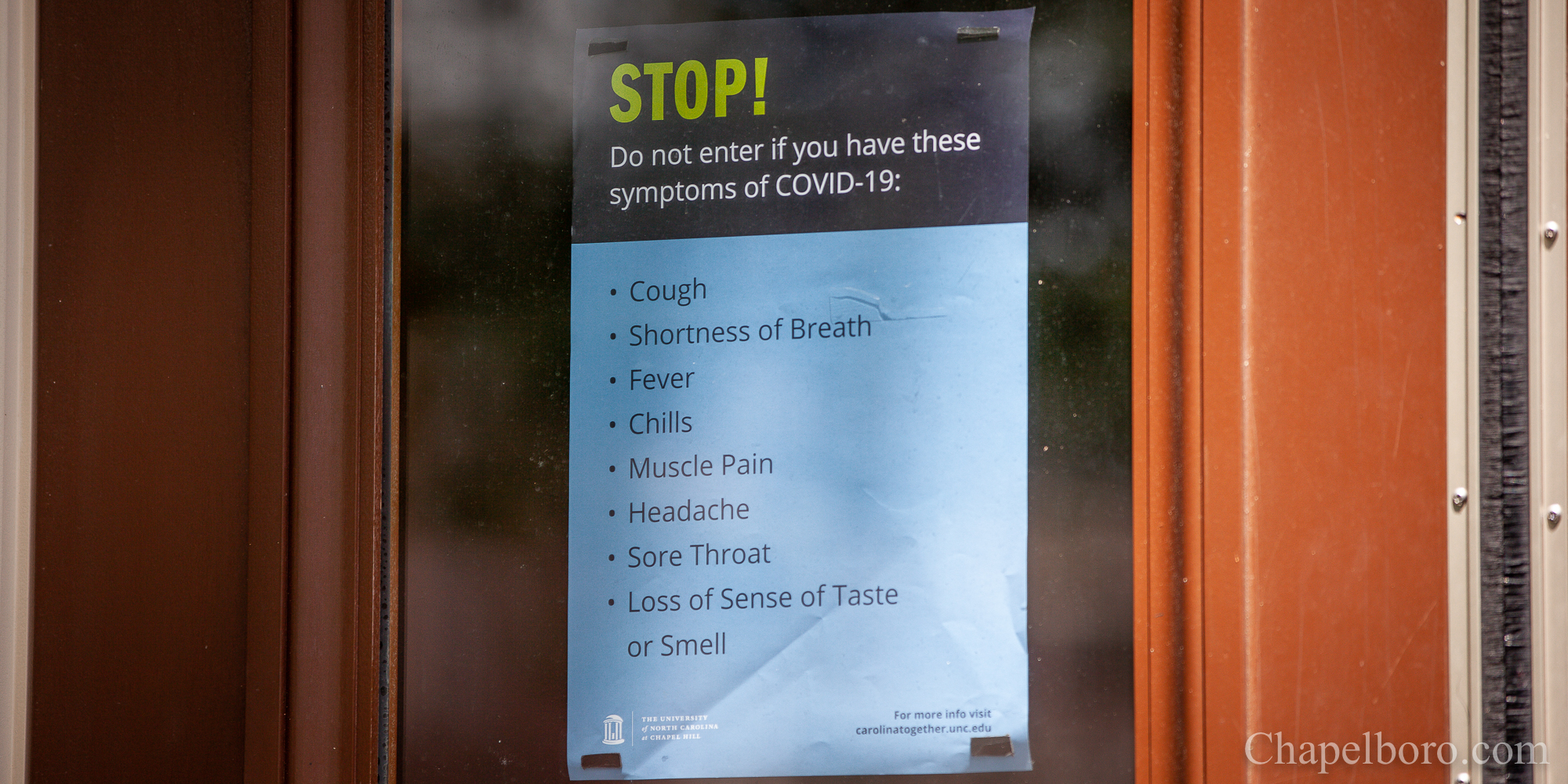The Orange County Health Department is recommending that UNC consider begin the fall 2020 semester with virtual classes and restrict on-campus housing to at-risk students with housing needs.
Orange County Health Director Quintana Stewart said in a July 29 letter to campus leadership that she “received a massive amount of emails from community members, UNC staff, faculty and students sharing their concern for fully reopening campus for the Fall Semester” amid the coronavirus pandemic.
Stewart said that if thousands of UNC students begin moving back to campus, Chapel Hill and Orange County could “quickly become” a new hot spot for cases as students begin to interact in a manner normal for college students in a congregate setting. She references the recent outbreak among the UNC Athletics department as an example for how challenging it will be for students to practice health guidelines despite their best efforts.
As of Wednesday, Orange County is reporting 1,296 coronavirus cases and 45 deaths from the virus. Recently, UNC launched its own COVID-19 dashboard which tracks the number of cases on campus. The university is reporting 175 total cases on campus, 139 of which are from students.
As UNC’s campus begins to reopen, Stewart said Orange County officials have seen increased activity in areas normally frequented by college students.
“We’ve experienced the increased activity and gathering on Franklin Street that resulted in clusters that visited a couple of local restaurant/bar establishments” Stewart said. “We’ve seen the off campus parties and gatherings at Greek Houses. We’ve also experienced the lack of cooperation from students with the communicable disease investigation and control measures mandated by NC General Statute 130A-144.”
As such, Orange County recommends that UNC consider restricting on-campus housing to at-risk students with no access to equitable educational resources and those with true housing needs. Additionally, the county calls upon the university to consider virtual classes for the entire fall semester but at minimum begin the first five weeks of the semester with online instruction only with plans to reassess the situation at the five-week mark.
Chancellor Kevin Guskiewicz released a statement to the campus community on Wednesday afternoon explaining UNC’s response to Stewart’s letter.
“It is important to note that we have had a very cooperative and collegial working relationship with the OCHD for many years,” Guskiewicz said.
Guskiewicz said that while the letter was not an order or a mandate for the university to take specific action, campus leadership “took their recommendations very seriously.”
Campus leadership also met with Stewart and the Orange County Medical Director Dr. Erica Pettigrew.
“During the call, I updated them with our progress toward campus de-densification as well as other initiatives we are employing throughout our campus to create a safe learning and working environment,” Guskiewicz said. “I also reiterated that we believe we are well prepared for the start of the fall semester and we will continue to track trends that could lead us to recommend a modification to our plans.”
Guskiewicz said that the university was advised by the UNC System to stay the course with its current reopening plan.
Chapel Hill Mayor Pam Hemminger, Carrboro Mayor Lydia Lavelle, Hillsborough Mayor Jenn Weaver and Orange County Commissioner Penny Rich joined together in signing a letter addressed to UNC on Wednesday calling for the university to follow recommendations by Orange County.
UNC’s plan to reopen the campus to students began in May, when the university announced that classes would begin and end early to avoid a potential second wave of COVID-19 after Thanksgiving. Face masks will also be mandatory on campus along with a six-foot physical distancing guideline.
More information regarding UNC’s plan to return for the fall semester can be found on its Carolina Together website.
In regards to the request to beginning classes virtually, Stewart cited the growing number of cases among the younger age group.
“Today we are seeing more cases with the younger age group and more community transmission and asymptomatic cases than originally seen,” she said. “For this reason, if the first five weeks of instruction is virtual, we may be able to reduce further spread of the virus by eliminating in class instruction which would create more opportunities for close contact and possible viral spread.”
UNC’s residence halls will be open at full capacity, which puts the buildings in the “highest risk” category for the spread of the coronavirus, based on the Centers for Disease Control’s guidelines for colleges and universities.
The university, however, has reported its housing numbers are decreasing. According to Carolina Housing Executive Director Allan Blattner, more than 2,100 students have notified UNC they will not be living on campus this academic year since May 1.
Orange County’s policies to curb the spread of coronavirus include making face masks mandatory and closing restaurants early to prevent large gatherings. Stewart said despite those efforts, she fears “it will not be enough to contain the full campus community upon return for the Fall Semester.”
Click here to read Orange County’s complete letter to UNC campus leadership.
Chapelboro.com does not charge subscription fees. You can support local journalism and our mission to serve the community. Contribute today – every single dollar matters.

